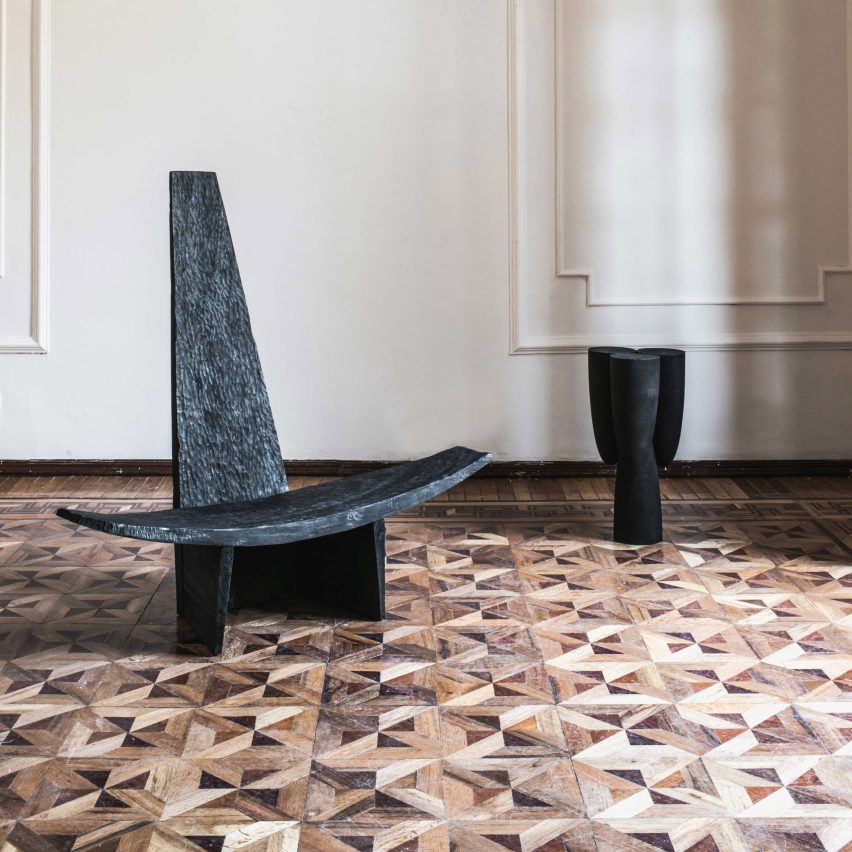
New York design brand TRNK has juxtaposed furniture by seven contemporary design studios with vintage African masks and furniture for its Provenanced exhibition.
The exhibition, which is online-only, features work by designers including Sardinia-based Pretziada, Tbilisi design studio Rooms, and Ethiopian American artist and industrial designer Jomo Tariku.
Among the pieces showcased is the Nyala chair by Tariku, whose shape was inspired by the east African mountain antelope, and the stoneware and raffia Bona lamp by Barcelona-based ceramicist Marta Bonilla.
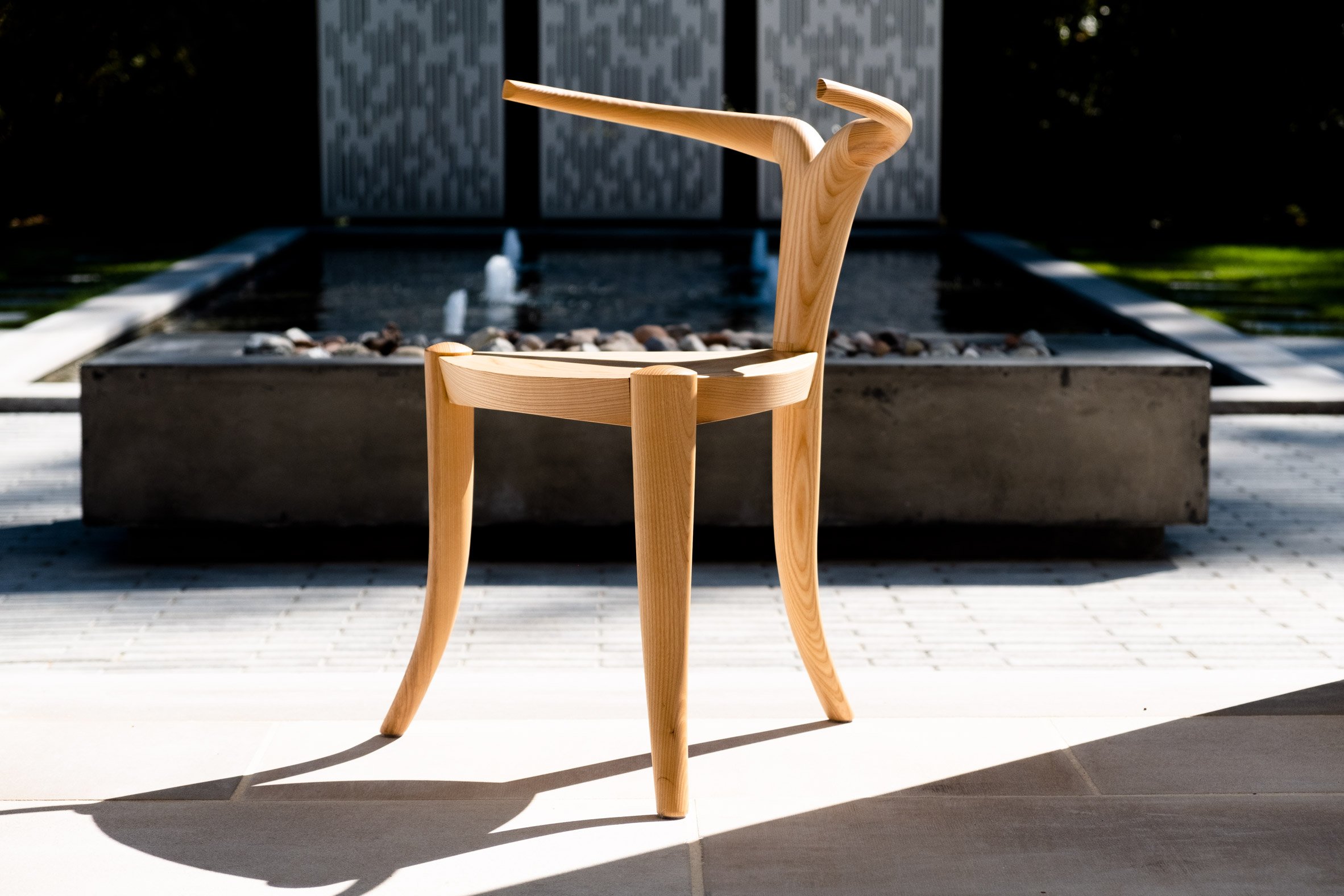
Provenanced mixes the contemporary commissioned works with vintage African masks and chairs, including a Baule mblo mask from the Ivory Coast and a hand-carved chair made by the Lobi people in the early 20th century.
The exhibition aims to underline how African and non-western design has influenced western artists and designers for centuries without being fully contextualised, according to TRNK founder Tariq Dixon.
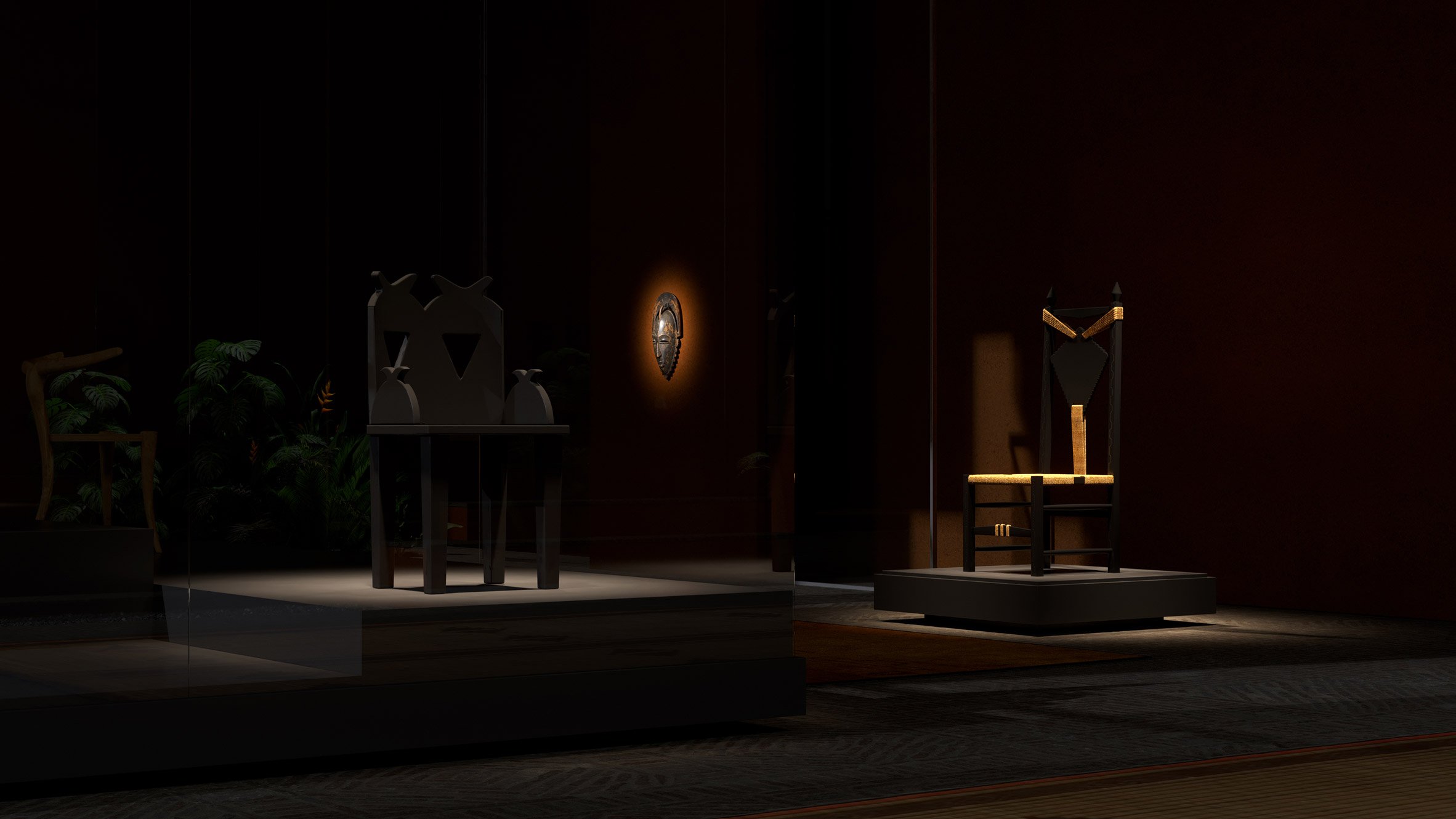
"This idea had been brewing in my head for a while, and it’s a conversation that comes up with my peers of colour quite often," Dixon told Dezeen.
Dixon felt a greater sense of urgency about bringing the exhibition to life when conversations around race and racial diversity became a global dialogue in June of this year, after the killing of George Floyd in May.
"Within the design industry, it seemed to me that the most visible conversations were centred around representation, diversity, and inclusion, however, I didn’t feel like these conversations alone were sufficient," he said.
"These gestures act as a band-aid – albeit, a necessary one at this point – but if we are to realise lasting, sustainable change, we have to unpack our wrought histories and the legacies that still plague us with ignorance or biases."
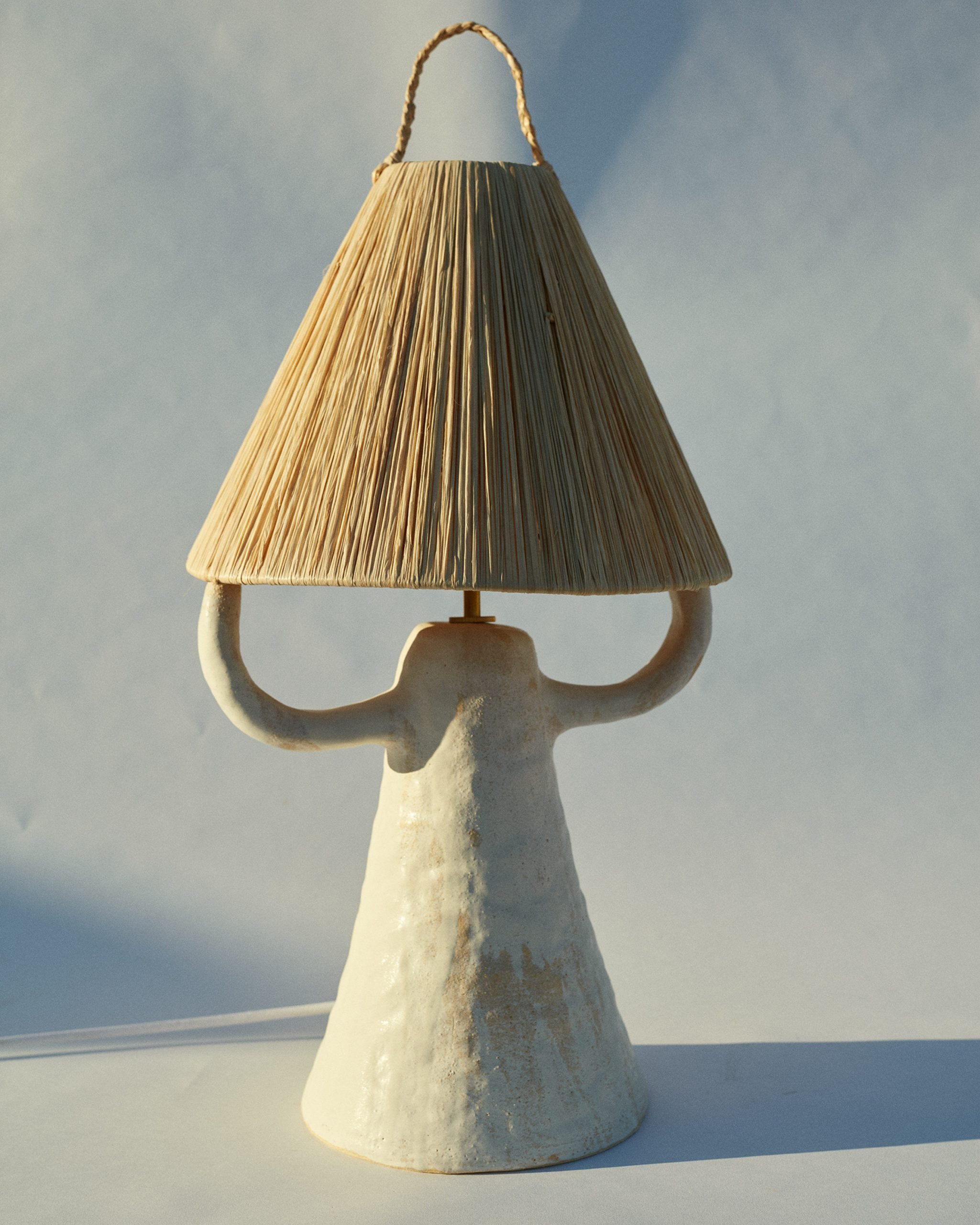
The designers featured in Provenanced were chosen specifically to let viewers explore the connection between the contemporary designs and the vintage works.
"I wanted to achieve a visual seamlessness with the selected works so that viewers could easily connect the dots between past and present, non-western and western," Dixon said. "All of the works share similar visual languages when it comes to form, line and materiality."
"I also wanted to highlight the breadth and depth of these African and Indigenous contributions to western design by selecting designers with varied origin stories and levels of intentionality. Not all of the designers would consider African or Indigenous art forms as primary sources of inspiration."
A number of the pieces on show, both modern and historic, are forms of seating, which Dixon sees as an example of a storied, reciprocal relationship between African and western design.
"It’s easy to see how western cultures have taken inspiration from the languages presented by the two vintage chairs (Jimma and Lobi) presented in the exhibition," he said.
"The African influence over seating was especially popular in the Art Deco movement with designers like Victor Courtray and Pierre Legrain."
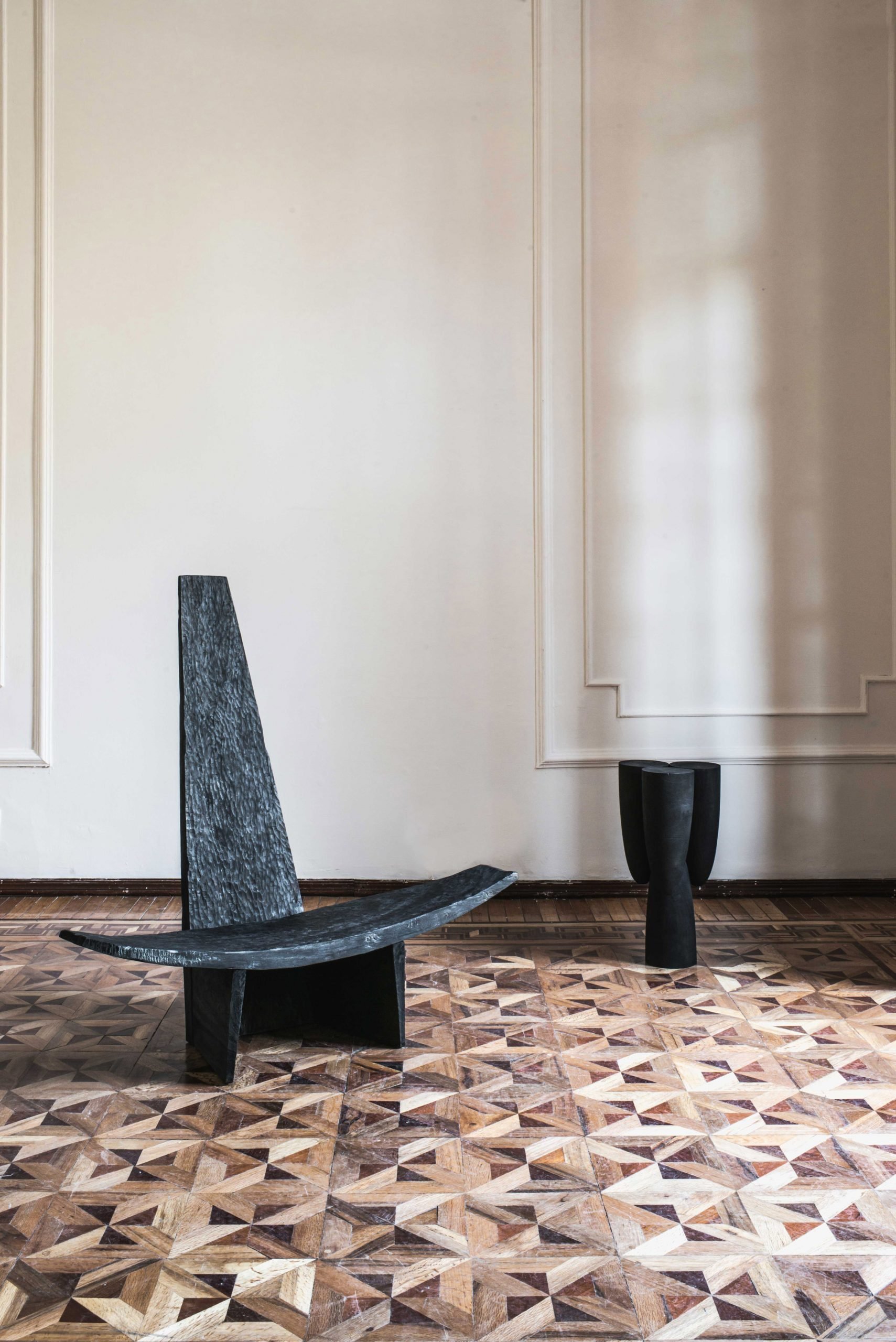
A contemporary example is Ewe Studio's Partera chair, informed by ancient birthing chairs that were used in Mexico and around the world and are still popular today.
"Our re-interpretation carefully derived by respecting its origin, history, and portraying the power of the object, reflected in its shape and the process of hand-carving and burning the wood," the studio said.
Though the contemporary pieces on show are made by global studios, none of the designers featured in the Provenanced exhibition are based in Africa.
"This was definitely a consideration, but I instead decided to centre this exhibition on how African and Indigenous visual languages have penetrated western design culture," Dixon said.
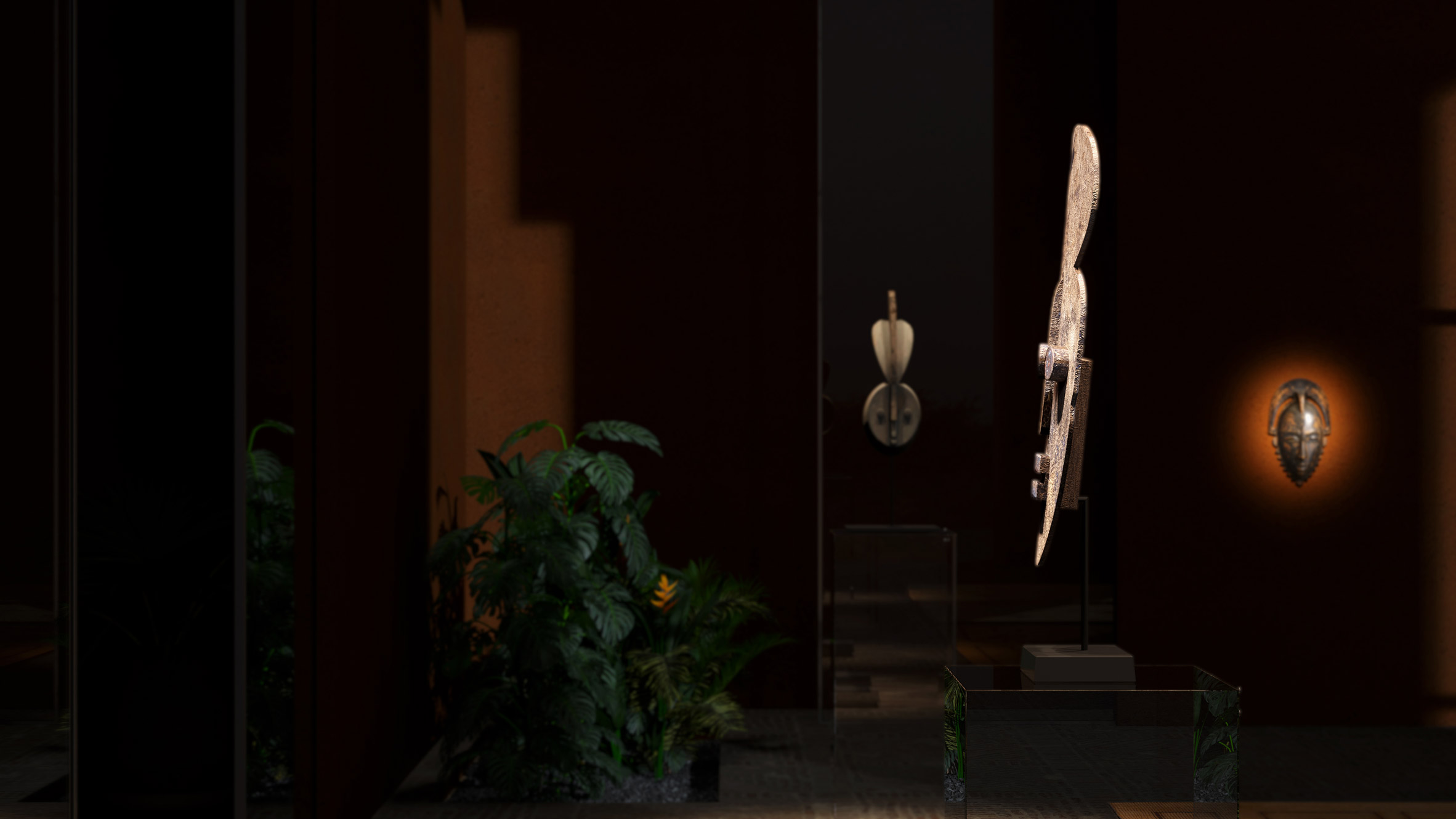
"I wanted to illuminate the ways in which these contributions have been largely erased or obscured by our colonialist legacies, now either unknown or unacknowledged by the western design industry at large," he added.
"The exhibition was also an opportunity for the participating designers to self-reflect, and in some cases, reconsider how they think about and explain their references."
He intends to continue the Provenanced project and hold future exhibitions with new contributors.
"I would certainly like to offer African and designers from the Black diaspora to respond, either by recontextualizing these sources of inspiration or responding to western reinterpretations of these ideas," Dixon said.
The designers and studios taking part in Provenanced are Ewe Studio, Marta Bonilla, Rooms, Pretziada, Ben and Aja Blanc, Jomo Tariku and Form Atelier.
Among other recent design exhibitions are Riot Design, for which Italian visual artist Pablo Chiereghin created furniture from smashed-up everyday items, and Alpenglow Project's inaugural show of art by North American designers.
Film and exhibition images are by Form and Rausch.
Provenanced can be viewed online now. See Dezeen Events Guide for an up-to-date list of architecture and design events taking place around the world.
The post TRNK's Provenanced exhibition pays homage to the influence of African and non-western design appeared first on Dezeen.
from Dezeen https://ift.tt/2Iqhx4I
No comments:
Post a Comment